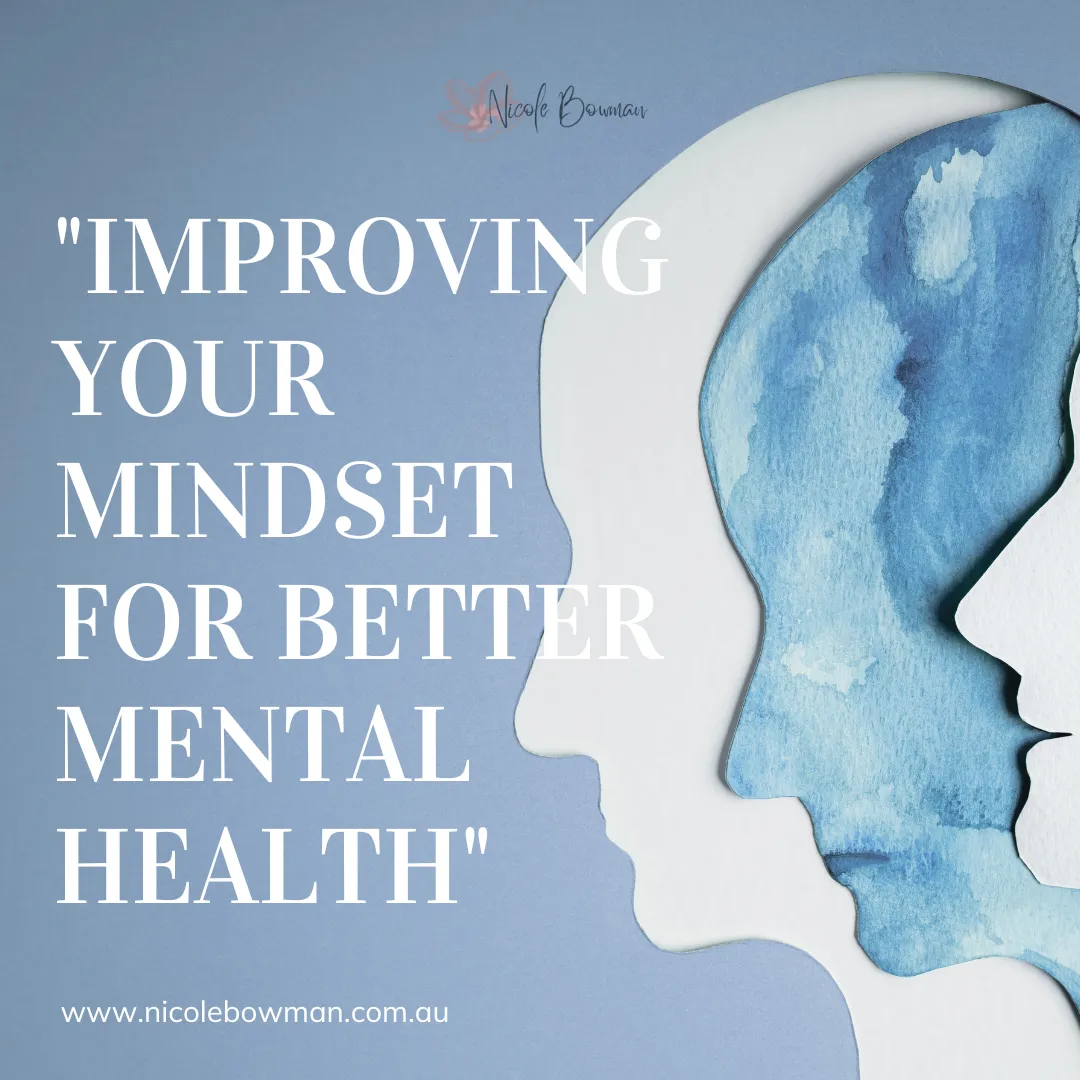Improving Your Mindset for Better Mental Health
One important aspect of mental health is mindset, or the way we think and perceive the world around us. In this blog, we'll explore the connection between mental health and mindset, and provide tips for improving your mindset to support your overall mental health.
What is mindset?
Mindset refers to the attitudes, beliefs, and thoughts that shape our perceptions and responses to situations. It can be either fixed or growth-oriented. A fixed mindset assumes that our abilities and qualities are fixed traits that cannot be changed. A growth mindset, on the other hand, sees challenges as opportunities for growth and learning. Having a growth mindset can help us cope with difficult situations, build resilience, and improve our mental health.
How does mindset affect mental health?
Research has shown that having a positive mindset can have a positive impact on mental health. For example, a study published in the Journal of Personality found that individuals with a growth mindset were less likely to experience depression, anxiety, and stress than those with a fixed mindset. This is because a growth mindset helps us see challenges as opportunities for growth, rather than as threats.
On the other hand, having a negative mindset can contribute to mental health problems. Negative thoughts and beliefs can lead to feelings of helplessness, hopelessness, and despair. This can contribute to anxiety and depression, and make it harder to cope with life's challenges.
Tips for improving your mindset
If you're looking to improve your mental health, developing a growth mindset can be a good place to start. Here are some tips to help you cultivate a growth mindset:
1. Practice self-awareness. Pay attention to your thoughts and beliefs. Notice when you're having negative thoughts or self-talk, and try to reframe them in a more positive way.
2. Embrace challenges. Instead of avoiding challenges, seek them out as opportunities for growth and learning. Celebrate small victories and use setbacks as learning opportunities.
3. Develop a sense of purpose. Having a sense of purpose can help you stay motivated and resilient in the face of challenges. Think about what gives your life meaning and work towards those goals.
4. Practice self-compassion. Treat yourself with kindness and compassion, even when you make mistakes or experience setbacks. Remember that nobody is perfect, and that we all make mistakes.
5. Surround yourself with positivity. Spend time with people who uplift you and support your growth. Avoid negative influences and seek out positive role models.
Mental Health Month is a reminder of the importance of taking care of our mental health. Developing a growth mindset can be an effective way to improve mental health and build resilience in the face of challenges. By practising self-awareness, embracing challenges, developing a sense of purpose, practising self-compassion, and surrounding yourself with positivity, you can cultivate a positive mindset and support your overall mental health.
Remember, taking care of your mental health is just as important as taking care of your physical health.
If you're looking for more guidance and support in improving your mindset and mental health, consider signing up for my coaching program. I provide personalised support and guidance as you work towards developing a growth mindset and improving your mental health. With the tips mentioned in this blog as a foundation, I can help you set goals, track progress, and overcome obstacles as you work towards a happier, more fulfilling life. Don't hesitate to invest in your mental health and well-being - sign up for my coaching program today. https://bit.ly/3nzVfSR
#MentalHealthMonth #MindsetMatters #GrowthMindset #PositiveThinking #SelfAwareness #EmbraceChallenges #SenseOfPurpose #SelfCompassion #Positivity #Resilience #coaching #mindsettoolkit


